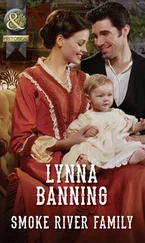But what absorbs Charlie’s and Thomas’s interest is a sort of alcove or closet at the far end of the room. It is not quite big enough to be thought of as a room in its own right and is separated from the main space by a row of iron bars that turn it into a kennel. A door is worked into the bars, just large enough to admit a person. Inside stand a cot, a stool, a chamber pot. Incongruously, a thick little carpet covers much of the floor of the alcove, and its walls have been wallpapered with a design that shows the silhouettes of ladies in ball gowns, each arrested in a different posture, gold leaf on mauve. As the lamp flickers, these dancers appear to twitch and move. The cot, somewhat too short and narrow to be comfortable, is freshly made. At the height of neck, wrists, and ankles, its metal frame anchors leather restraints. A ring of steel is let throat-high into the wall.
The boys stare at this alcove for a full minute. Again and again Charlie focusses the lamp on the wallpaper, the cot, the chamber pot. It’s this chamber pot that somehow fills him with a particular horror. In the absence of a prisoner it concentrates upon itself all the evil, the humiliation of this cage.
“We must go,” Livia calls again, softly, across the darkness of three rooms.
Without a word, the boys turn around and walk back to her, their faces grim with anger.
ф
They extinguish the lamp before Livia opens the door. Outside, the long corridor lies dark and silent. She turns, locks up, tension leaving her frame. It is as though she’s stepped out of a corset.
As she curls the key into her fist and leads the way back towards their room, a light is turned on, or rather the hood is turned back on a lamp already burning, arresting them in a beam focussed by its parabolic mirror. They freeze, blink blinded into the glare, see the outline of a figure behind the lamp, ten steps away. Then, as quickly as it was opened, the lamp hood is shut. Steps move away from them, into the freshly thickened darkness of the house. It all happens so quickly that there is no time to decide between flight and pursuit. By the time their eyes have recovered enough sight for them to consider either, it is too late. They walk back to their rooms with exaggerated slowness.
“I’m sorry,” Charlie says to Livia when they part ways. Sorry they got her into trouble. Sorry they mixed her up in their felony and weren’t clever enough not to get caught.
But her face robs all force from his words, her features flitting from self-reproach to a nunnish kind of pride: pride at how thorough the punishment will be that she has already begun devising for herself.
“There will be no need to assist me with my father tomorrow, Mr. Cooper. Good night, Mr. Argyle.”
The words have all the formality of a coroner pronouncing death.
ф
They cannot find sleep. Lying in their beds in darkness, separated by two steps and the walls we all erect around our thoughts, they listen to each other breathing. Their conversation is halting, interrupted by long minutes of silence.
“Who was it with the lamp?”
“Lady Naylor. Or Thorpe, or Julius, or Price. Does it really matter? One way or another, it means she knows.”
There is a rustle in the room, as of something creeping along a linen sheet. It might be Thomas running his fingernails over the pillow or a mouse scraping at the foot of the mattress. Charlie wants to light a candle and find out. But the room is cold around him, and his limbs leaden. He speaks to say something; to silence the sound.
“What’s all the Soot for?” he asks.
“Don’t know. But she likes it fresh, from killers, the moment they are dead.”
Thomas’s voice shifts with the next breath, grows younger somehow. In the darkness it is easy to imagine him as a child, twelve years old, eyes burning fiercely with fear and defiance.
“She is collecting Soot, the blackest she can get. Then who is the cage for, Charlie?”
Charlie does not answer at once. He pictures the iron collar screwed in the wall, high above the cage’s too-short cot. It seems too slender for Thomas’s neck.
“She wouldn’t,” he says at last.
“We don’t know the first thing about what Lady Naylor would or wouldn’t do.”
“Then we must do what we promised. Leave. This very day.”
Thomas responds by lighting a candle. He holds it close to his face, shadows chasing upwards, past his swollen cheeks and brows. His voice is calm, pensive.
“If that’s what it takes, you know. . To defeat Smoke, I mean, once and for all. If all she’s missing is the last bit of Soot, the right sort of Soot, tainted from birth. . I mean, if that’s what is growing in me, and if she asked me to — I’d do it, Charlie, I would. Even if it comes with that collar. Or with a rope.”
Charlie watches the thought unfold in Thomas. He doesn’t try to dissuade him. All he says is “She hasn’t asked.”
“Maybe she’s working up to it.”
“Maybe. If so, she can write you a letter.”
Thomas’s expression is stony. Then a smile crawls over his face.
“A letter?”
“Yes. Kindly request your volunteering yourself to be killed. Much obliged. RSVP at earliest convenience.”
They both giggle. It’s the sound of relief.
“You’re right, Charlie. Let’s get the hell out of here.” Then: “Where will we go?”
“Home. My parents set off for Ireland today. But Lady Naylor doesn’t need to know that. We will have the house to ourselves.”
Thomas is quiet for a moment.
“She might not let us,” he says at last.
“No,” Charlie concedes. “But then we’ll know what she is about.
“I am a Cooper,” he adds after some thought. “Firstborn son of the eighth Earl of Shaftesbury. It’d be hard to make me disappear.”
ф
They broach the subject with Lady Naylor at lunch. They could not locate her before, ate breakfast alone in the smaller of the three dining rooms. It is Charlie who takes the word. He explains how his sister’s recent letter included a note from his parents requesting he come home with his friend; how his mother in particular is keen to meet Mr. Argyle about whom she has heard so much; and adds that his father is desirous that they come as quickly as possible so that he can introduce them to a cousin visiting from Ireland.
Thomas interrupts his flow of eloquence.
“In short,” he says, “we will leave today.”
Throughout all this Lady Naylor sits impassive, stiff-backed, her fork embedded in a piece of cold pork.
“It’ll be dark before you get to the station. The roads aren’t safe. Besides, you are too late for the express.”
Thomas is about to argue, but she has already turned to her butler.
“Thorpe, please talk to the coachman. And help the gentlemen pack. They leave at dawn.”
ф
They spend the day in their room, only venturing forth for necessities. Neither of them says so out loud, but it’s because they are scared. Scared of something going wrong, someone stopping them, thwarting their escape. When they arrived, ten days ago, the house bored them. Now it feels like a trap. As they sit, counting the hours, Charlie finds his thoughts wandering to Livia. He feels like he owes her an explanation, or perhaps she him. About what exactly, it is hard to say.
After dinner Lady Naylor asks Charlie and Thomas to join her in her study. She sits down behind her desk and makes them swear “not to speak or otherwise mention any of my research or any of the historical insights I have shared with you, on your honour as gentlemen.” The phrase is so cumbersomely legalistic that Charlie half expects her to pull a sheet of paper from her drawer and require their signatures. Before they are dismissed, she rises to press their hands.
Читать дальше












